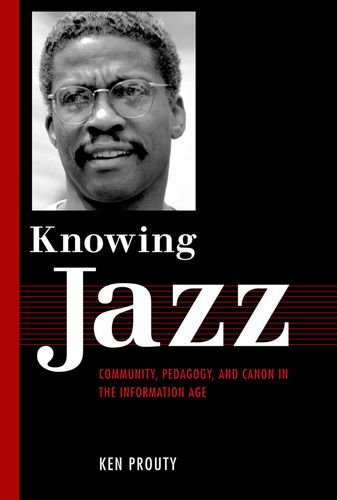

Most ebook files are in PDF format, so you can easily read them using various software such as Foxit Reader or directly on the Google Chrome browser.
Some ebook files are released by publishers in other formats such as .awz, .mobi, .epub, .fb2, etc. You may need to install specific software to read these formats on mobile/PC, such as Calibre.
Please read the tutorial at this link: https://ebookbell.com/faq
We offer FREE conversion to the popular formats you request; however, this may take some time. Therefore, right after payment, please email us, and we will try to provide the service as quickly as possible.
For some exceptional file formats or broken links (if any), please refrain from opening any disputes. Instead, email us first, and we will try to assist within a maximum of 6 hours.
EbookBell Team

5.0
100 reviewsKen Prouty argues that knowledge of jazz, or more to the point, claims to knowledge of jazz, are the prime movers in forming jazz's identity, its canon, and its community. Every jazz artist, critic, or fan understands jazz differently, based on each individual's unique experiences and insights. Through playing, listening, reading, and talking about jazz, both as a form of musical expression and as a marker of identity, each aficionado develops a personalized relationship to the larger jazz world. Through the increasingly important role of media, listeners also engage in the formation of different communities that not only transcend traditional boundaries of geography, but increasingly exist only in the virtual world.
The relationships of "jazz people" within and between these communities is at the center of Knowing Jazz. Some groups, such as those in academia, reflect a clash of sensibilities between historical traditions. Others, particularly online communities, represent new and exciting avenues for everyday fans, whose involvement in jazz has often been ignored. Other communities seek to define themselves as expressions of national or global sensibility, pointing to the ever-changing nature of jazz's identity as an American art form in an international setting. What all these communities share, however, is an intimate, visceral link to the music and the artists who make it, brought to life through the medium of recording. Informed by an interdisciplinary approach and approaching the topic from a number of perspectives, Knowing Jazz charts a philosophical course in which many disparate perspectives and varied opinions on jazz can find common ground.